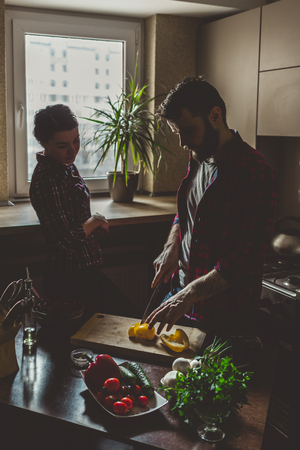Embracing the Great British Outdoors: Rethinking Your Camping Kitchen
Camping across the UK is a uniquely rewarding experience, whether you’re pitching up in the wilds of the Lake District, along the windswept Scottish Highlands, or at a family-friendly campsite in Cornwall. However, British campers face a blend of challenges and opportunities due to our famously unpredictable weather, compact campsites, and strict environmental considerations. These factors mean that an innovative approach to your camping kitchen setup isn’t just a matter of convenience—it’s essential for making the most of your adventure. With limited space, frequent rain showers, and the need to leave no trace, every item and every layout decision matters more than ever. By embracing clever storage solutions and adaptable tabletop cooking gear specifically suited to British conditions, campers can ensure their outdoor culinary experiences are both enjoyable and efficient. This fresh perspective on camping kitchens is about more than just what you pack—it’s about reimagining how you cook, store, and share food while truly embracing the great British outdoors.
Clever Storage Solutions for Campers and Caravans
When it comes to camping in the UK—whether you’re tucked away in a tent, parked up in a trusty campervan, or making the most of a compact caravan—space is always at a premium. The key to an efficient camping kitchen setup lies in clever storage solutions that make use of every available inch. British campers have long relied on locally sourced containers and inventive DIY hacks to keep things tidy and accessible.
Practical Storage Ideas for Limited Spaces
Maximising your kitchen space starts with selecting the right containers. Opt for stackable, airtight boxes from reliable UK retailers like Lakeland or Wilko. Collapsible crates and silicone food tubs are particularly handy, as they compress down when not in use. For those who enjoy a bit of DIY, repurposing ice cream tubs or sturdy biscuit tins offers a sustainable and cost-effective alternative.
Recommended British-Sourced Storage Options
| Product Type | Brand/Source | Main Benefit |
|---|---|---|
| Stackable Food Containers | Lakeland | Space-efficient; keeps ingredients fresh |
| Collapsible Washing Up Bowls | Wilko | Saves space when not in use |
| Bamboo Storage Baskets | Dunelm | Lightweight and stylish for visible storage |
DIY Hacks & Foldable Solutions
If you’re handy with tools, consider mounting lightweight shelving or using tension rods inside cupboards to double up storage. Magnetic spice racks can be attached to metal surfaces, while over-the-door organisers work brilliantly for utensils and condiments. For tableware, look for foldable sets that can slide easily into drawers or under seats—ideal for small British vehicles where every centimetre counts.
By combining shop-bought containers, foldables, and easy DIY tweaks, UK campers can keep their kitchens organised without sacrificing precious living space—making outdoor cooking simpler and more enjoyable for everyone.

3. Weatherproofing Your Kitchen: Staying Organised Come Rain or Shine
The unpredictability of British weather means your camping kitchen setup must be ready for anything from drizzle to downpour. Keeping food, kit, and cooking essentials dry and well-organised is a challenge, but with the right approach, it’s entirely achievable—no matter if you’re pitching up in the Lake District or along the Cornish coast.
Choose Weatherproof Storage Solutions
Start with robust, waterproof containers for your dry goods and utensils. Look for stackable plastic boxes with secure lids or heavy-duty dry bags; these not only prevent water ingress but also help keep out mud and curious wildlife. For extra peace of mind, line containers with bin bags as an added layer of protection against persistent UK dampness.
Keep Cooking Gear Accessible Yet Protected
A foldable camp kitchen unit with a weather-resistant worktop is ideal for the British climate. Many models now include integrated windshields and zip-up compartments made from ripstop fabric—perfect for keeping your stove, pans, and condiments safe from sudden showers. Store pots, pans, and knives in mesh organisers that allow air circulation to prevent mildew, yet provide rapid access when the rain stops and it’s time to cook.
Smart Site Selection and Shelter Setup
Always set up your kitchen on high ground to avoid pooling water and use a tarp or gazebo to create a dedicated sheltered area. A simple guy-roped tarp provides ample coverage for both prepping and cooking, allowing you to keep calm and carry on even in classic British drizzle. Remember to angle one side lower for runoff so water doesn’t collect overhead.
Food Safety in Damp Conditions
It’s crucial to keep perishables cool and dry: invest in an insulated cool box or bag with ice packs, and store it under cover but off the ground (a folding crate works well). Keep all food sealed and elevated where possible—UK campsites are notorious for nosy foxes as well as wet grass!
Practical Tips for Staying Organised
Label everything clearly using waterproof tape or permanent markers so you can find what you need quickly, even if the weather turns sour. Pack essentials like matches, tea bags, and spices into small screw-top jars or resealable bags. When breaking camp, wipe down all kit thoroughly before stowing away—to prevent mould on your next adventure.
With these practical strategies tailored for UK conditions, you can keep your camping kitchen tidy and efficient—ready for whatever the great British outdoors throws your way.
4. Tabletop Cooking Solutions: From Campfires to Compact Stoves
When it comes to camping in the UK, unpredictable weather and site regulations often mean that open fires are not always practical or permitted. Therefore, selecting the right tabletop cooking equipment is crucial for a safe, enjoyable, and efficient outdoor cooking experience. Below, we explore some of the most innovative and reliable portable cooking options available to UK campers, considering local preferences and safety standards.
Gas Stoves: Reliable and Versatile
Gas stoves remain a favourite among UK campers due to their ease of use, quick ignition, and precise temperature control. Modern models are compact enough to fit on any camping table yet powerful enough to handle anything from a morning brew to a full English breakfast. Look for units with wind shields and piezo ignition for maximum convenience in blustery British conditions.
Portable BBQs: Authentic Flavour, Anywhere
For those who enjoy grilled food, portable BBQs offer an authentic taste of summer regardless of your campsite’s facilities. Charcoal and gas variants each have their merits – gas models heat up faster and are easier to clean, while charcoal BBQs provide that classic smokey flavour loved by many across the UK. Choose foldable or briefcase-style BBQs for easy transport and minimal setup time.
Safe Fire Pits: Embracing Tradition Responsibly
While traditional campfires can be restricted, many campsites now allow safe fire pits that comply with UK fire safety regulations. These off-the-ground solutions protect the grass and surroundings while still letting you enjoy marshmallows and jacket potatoes under the stars. Look for fire pits with integrated grills for dual-purpose use.
Comparison Table: Popular Portable Cooking Options
| Equipment Type | Main Fuel Source | Key Features | Best For |
|---|---|---|---|
| Gas Stove | Butane/Propane | Quick ignition, adjustable flame, windproof options | Campsites with table space, fast meals |
| Portable BBQ (Charcoal) | Charcoal | Traditional flavour, compact design | Grilling enthusiasts, flavour-focused cooking |
| Portable BBQ (Gas) | LPG/Butane | No smoke, easy cleaning, instant heat | Parks & regulated sites where open flames are restricted |
| Safe Fire Pit | Wood/Charcoal | Off-ground design, grill attachments available | Evenings outdoors, social gatherings |
Efficient Setup Recommendations for UK Campers
An efficient tabletop kitchen starts with careful planning. Opt for nesting cookware and utensils to save space. Use collapsible tables that offer both prep and cooking surfaces. Always check campsite rules regarding fuel types before packing your gear—some locations prohibit certain fuels or require raised fire pits. Finally, keep a fire extinguisher or bucket of water nearby as a precaution—UK weather may be damp but safety always comes first.
5. Sustainable and Local: British Approaches to Outdoor Cooking
In the UK, camping culture is increasingly intertwined with sustainability and a strong sense of local identity. British campers are leading the way in incorporating eco-conscious habits into their outdoor kitchen routines, making innovative choices that both respect the environment and celebrate regional resources. Here’s how you can bring these practices into your next camping adventure.
Reusable Materials for a Greener Camp Kitchen
One effective step is to swap out single-use plastics for durable, reusable alternatives. Consider stainless steel containers, bamboo cutlery, and collapsible silicone bowls—each resilient enough for rugged British weather. These materials not only reduce waste but also withstand repeated use, aligning with the practical mindset of UK outdoor enthusiasts.
Locally Sourced Ingredients: Flavour and Footprint
Britain’s diverse landscapes offer a rich pantry for campers who wish to cook with local produce. From Scottish raspberries to Cornish sea salt, sourcing ingredients from farmers’ markets or local shops supports nearby communities and reduces food miles. Many campers even plan routes around farm shops or pick-your-own fields, turning ingredient gathering into part of the adventure.
Eco-Conscious Cooking Habits
Sustainability extends beyond equipment and food choices. Adopt low-impact cooking techniques such as using compact, fuel-efficient stoves or portable fire pits designed to leave no trace. Bring refillable water bottles and choose biodegradable soaps for washing up. Remember, respecting campsite rules about firewood collection and waste disposal is essential for preserving Britain’s treasured wild spaces.
By thoughtfully selecting reusable gear, embracing seasonal British produce, and practising responsible habits, you can create an innovative camp kitchen setup that honours both your surroundings and the environment—a hallmark of modern UK camping culture.
6. Site Etiquette and Regulations: Cooking Responsibly Across the UK
When setting up your innovative camping kitchen in the UK, it’s crucial to remain mindful of site etiquette and local regulations. Every campsite, from rural caravan parks in Cornwall to wild camping spots in Scotland, has its own set of rules designed to protect both campers and the surrounding environment. Before arrival, check if portable stoves or fire pits are permitted, as open flames are often restricted due to fire risk or wildlife protection policies. Always use designated cooking areas when provided, and never cook inside tents or close to flammable materials.
Respecting Local Wildlife and Habitats
The UK’s landscapes are home to diverse wildlife, from red squirrels in the Lake District to nesting birds along Welsh coastlines. To minimise disturbance, keep your cooking area tidy and avoid leaving food scraps that could attract animals. Use tightly sealed storage solutions for ingredients and leftovers—this not only deters curious foxes but also prevents the spread of invasive species. Stick to established paths and pitches when setting up your kitchen, ensuring minimal impact on fragile ground cover and habitats.
Leave No Trace Principles in Practice
Adhering to Leave No Trace principles is fundamental for responsible outdoor cooking across Britain. This means packing out all rubbish—including biodegradable waste—and thoroughly cleaning any cookware with eco-friendly soap away from natural water sources. If you’re using a portable table or elevated stove setup, make sure not to scorch the grass beneath, as even minor heat marks can leave lasting scars on popular sites.
Guidance for Group Campsites and Festivals
If you’re camping at larger events or group sites, be considerate with noise levels and space usage. Share communal cooking facilities respectfully and store kit compactly so others have room for their own setups. Familiarise yourself with any recycling points or food waste bins provided by organisers—it’s common at UK festivals for specific guidelines to be in place.
Summary: Responsible Innovation Outdoors
Innovative camping kitchen setups should always go hand-in-hand with responsible behaviour. By respecting site-specific rules, safeguarding wildlife, and following Leave No Trace guidelines, you’ll ensure your creative cooking solutions enhance—not harm—the beauty of the British outdoors.


